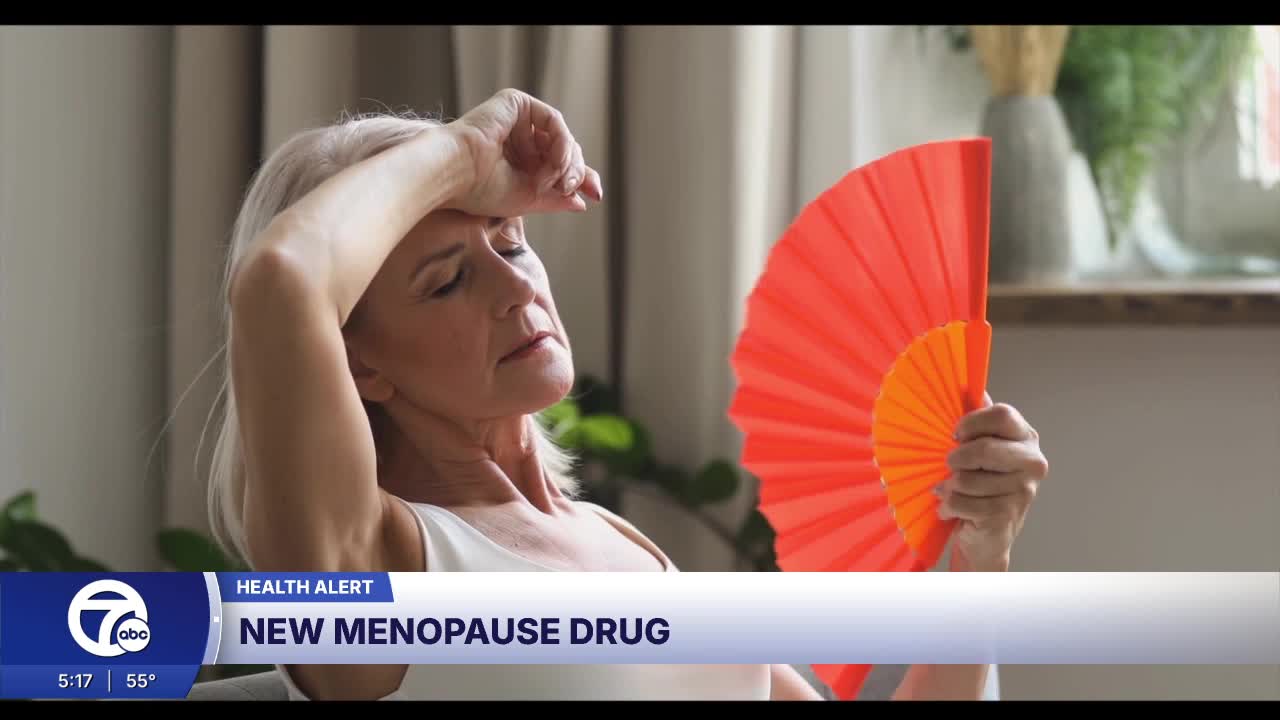(WXYZ) — Women dealing with hot flashes could soon have a new option for relief. The FDA has approved a nonhormonal drug designed to help ease those uncomfortable menopause symptoms.
This new drug shows real potential to cool hot flashes. Elinzanetant, which will be sold under the brand name Lynkuet, works in the brain, not with hormones.
Here’s how it works: during menopause, women start producing less of the hormone estrogen. As levels drop, nerves in the brain’s hypothalamus that help control the body’s internal temperature can get overactive. This sends out too many chemical signals called neurokinins, which trigger hot flashes.
That’s when a woman suddenly starts feeling hot in the face, head and chest. Symptoms can also include flushing and sweating — all of which can last a few minutes and feel quite disruptive.
Now, elinzanetant works by blocking two specific brain receptors, called neurokinin-1 and neurokinin-3, which trigger these sudden surges of heat. In a phase-three clinical trial involving more than 600 postmenopausal women, those taking 120 mg of elinzanetant saw a 73% drop in hot flashes and night sweats after just 12 weeks.
Even more encouraging, women also reported better sleep and a higher quality of life. The effects lasted for over a year.
The drug being nonhormonal is a big deal. Some women can’t take hormone replacement therapy — for example, those with a history of blood clots, heart disease and certain cancers like breast or ovarian. Also, some women may not want to take hormones.
The risks are different for each person and depend on individual health factors, so it’s important to talk with a doctor.
As for side effects, the most common ones were drowsiness, fatigue and headaches. Some women did show temporary increases in liver enzyme levels Out of more than 300 women on elinzanetant, six had mild or moderate elevations, most of which resolved on their own, and only one led to stopping treatment. Importantly, there were no serious liver problems.
It’s also worth noting that rare side effects sometimes only show up once a drug is used by a larger population. That’s why doctors will continue to monitor safety closely as more women take it.
But for many struggling with hot flashes or night sweats, this could make a real difference and should be available in the U.S. starting in November.




